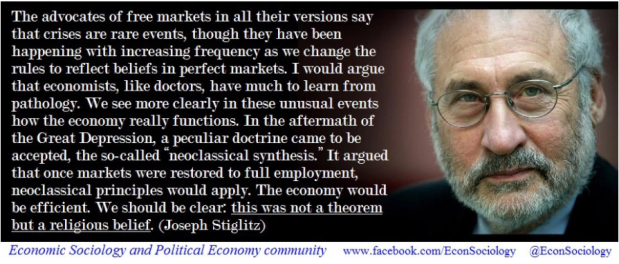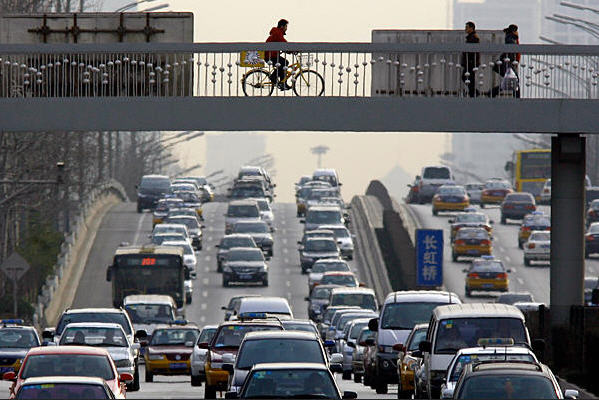
Good morning Brisbane


Good morning Brisbane

Source: https://www.climate-kic.org/opinion/cities-must-act-as-beacons-for-ambitious-climate-action/
Cities are a critical player in effective climate action, and many are already making headway where others are falling behind.
Will cities ultimately be viewed as the cause or solution to the global climate emergency? That seems to be the crossroads at which we now find ourselves, and it is a question which is either troubling or inspiring for city planners and mayors alike.
Cities are huge contributors to climate change, responsible for about 70 per cent of all greenhouse gas emissions and yet they are also at the frontline of the impacts of floods, extreme heat and drought.
Research by scientists at the Crowther Lab predicted that 77 per cent of cities around the world will experience dramatic change in climate conditions over the next 30 years.
For us, the most effective response begins by helping cities embrace the essential role they play. Cities are a critical player in effective climate action,
# # #
About the World Streets Climate program coordinator:
Eric Britton
13, rue Pasteur. Courbevoie 92400 France
Bio: Founding editor of World Streets (1988), Eric Britton is an American political scientist, teacher, occasional consultant, and sustainability activist who has observed, learned, taught and worked on missions and advisory assignments on all continents. In the autumn of 2019, he committed his remaining life work to the challenges of aggressively countering climate change and specifically greenhouse gas emissions emanating from the mobility sector. He is not worried about running out of work. Further background and updates: @ericbritton | http://bit.ly/2Ti8LsX | #fekbritton | https://twitter.com/ericbritton | and | https://www.linkedin.com/in/ericbritton/ Contact: climate@newmobility.org) | +336 508 80787 (Also WhatApp) | Skype: newmobility.)

– Paul Chatterton, School of Geography, University of Leeds, UK. Full text HERE
This climate emergency is also a ‘city emergency’. Most of the world’s population will soon be urban. Cities are locked in to high energy throughputs, are responsible for about three-quarters of global GHGs and energy use, have ecological footprints larger than their city limits, and remain locked in to high-growth, high-consumption lifestyles.
In the context of growing awareness of the severity of climate breakdown, the central role cities play in this, and the lack of rapid action, municipalities around the world are declaring ‘climate Emergencies’. To date 40 municipalities in the UK have signed such a declaration. Worldwide around 50 million now live in cities that have declared emergencies. This is an exciting addition to city level action through, for example, the C40 Leadership Group and the Global Covenant of Mayors.

Let’s see what Dr. Mayer Hillman — eminent architect, town planner and Senior Fellow Emeritus since 1992 at the Policy Studies Institute, University of Westminster where he worked for at least thirty years — had to offer in an interview that appeared in The Guardian last week. By Patrick Barkham Full text with illustrations at https://bit.ly/2FjpEbI
W’re doomed,” says Mayer Hillman with such a beaming smile that it takes a moment for the words to sink in. “The outcome is death, and it’s the end of most life on the planet because we’re so dependent on the burning of fossil fuels. There are no means of reversing the process which is melting the polar ice caps. And very few appear to be prepared to say so.”
Hillman, an 86-year-old social scientist and senior fellow emeritus of the Policy Studies Institute, does say so. His bleak forecast of the consequence of runaway climate change, he says without fanfare, is his “last will and testament”. His last intervention in public life. “I’m not going to write anymore because there’s nothing more that can be said,” he says when I first hear him speak to a stunned audience at the University of East Anglia late last year.

Lime, the micromobility company that’s flooded the streets of more than 100 cities around the world with fleets of green-and-white electric scooters, launched a Public Policy and Safety Advisory Board last week. The group, which convened for the first time at a safety summit in San Francisco, is tasked with determining what research and policy initiatives to pursue, what regulations to advocate for, and how to generally smooth the company’s sometimes-bumpy relationships with cities, riders, and riders-to-be.
Lime’s announcement reflects a growing acknowledgement within the e-scooter rental industry that safety concerns present a major barrier to mass adoption.
Continue reading

Good morning Brisbane
Hi Eric,
How to make every day almost a Car Free Day in the City?
A behavioral change can reduce the convenience of the personal car while increasing the convenience of multi-passenger shared taxis. This approach uses many carrots and one stick with the following features:
This is the fourth article in a series to explain why the Penang state government should get an independent review of the Penang Transport Master Plan (PTMP). Ahmad Hilmy & Lim Mah Hui | Published: 6 Aug 2018. https://www.malaysiakini.co
ANALYSIS | Why does Penang need to rush to have the 7.2km undersea tunnel project when the original Penang Transport Master Plan (PTMP) officially adopted by the state government clearly states that it is not an urgent priority?
Why this haste when the survey of Penang’s traffic volume by UK-based engineering consultant Halcrow showed that cross-channel traffic in 2011 accounted for only 7 percent of total state traffic during peak hours?

Excerpts from article by Ajith Vijay Kumar, April 28, 2018 | http://www.timesnownews.com/ https://bit.ly/2HWc1EQ
Nobel laureate Joseph Stiglitz, in an exclusive interview with timesnownews.com, talks about what is wrong with current American capitalism, rise of a new kind of politics emerging from dissent towards government and more. Here are some excerpts from the interview:

Safe cycling?
“City politicians around the world are in a race to make their cities “bike-friendly.” The more they succeed, the nastier things will get. . . Cycling lanes consume more space than they free up, add to pollution and drain the public purse”
Mr. Lawrence Solomon, executive director of Urban Renaissance Institute, Source: http://business.financialpost.com/opinion/lawrence-solomon-ban-the-bike-how-cities-made-a-huge-mistake-in-promoting-cycling
Let’s have a look at what Mr. Solomon has to offer when he challenges our thinking on these issues. Your comments as always are more than welcome.
* * Source: https://www.itdp.org/mexico-city-became-leader-parking-reform/
“This major policy change is a result of ITDP Mexico’s advocacy over the last 10 years…. So in 2014, with the support of the Ministry of Urban Development and Housing (SEDUVI), the research study “Less parking, more city” (“Menos cajones, más ciudad”) was born providing enough evidence to show the need of a change of paradigm. This study evolved into a proposal to modify the Construction Code that ITDP delivered to Mexico City’s Government in 2015. …
“A change of policy of this importance is not the work of a single individual or institution. ITDP Mexico supported the Ministry of Urban Development and Housing, and the Ministry of Mobility in the process of technical discussion with the different important guilds that are essential in the on-the-ground implications of this, such as the Real Estate Association (ADI). At the same time, agreements were made with the National Association of Supermarkets, Convenience and Departments Stores and also with the National Chamber of the Industry of Development and Promotion of Housing with the best of intentions to reach win-win agreements. The Legislative Assembly also recognized the need to reform the policy, and the role of civil society was incredibly important. Bicitekas, WRI, editorial house Arquine and, of course, IMCO, were all key to creating this more powerful, cross-cutting and lasting public policy.”

The short answer is yes!
– Esther Anaya-Boig, Doctoral researcher at Imperial College London
 I have just returned from the latest Velo-city Global Cycling Summit organized this year in Arnhem-Nijmegen, The Netherlands. The best part of the conference experience for me was that it gave me an opportunity to catch up with so many old friends and making new ones who share my deep interest in cycling as a mobility form and as a social act.
I have just returned from the latest Velo-city Global Cycling Summit organized this year in Arnhem-Nijmegen, The Netherlands. The best part of the conference experience for me was that it gave me an opportunity to catch up with so many old friends and making new ones who share my deep interest in cycling as a mobility form and as a social act.
I appreciate the hard work and good intentions of the many many people who have contributed and made this event possible. However upon considerable reflection on what I saw and heard during the three days of the conference and associated events, I would now like to share some views and reactions, with all due respect of course.
Continue reading

In December I travelled to the city of Kunming, in Yunnan province, China. The occasion of the trip was to attend a conference on planning and give a talk on economics at that conference. The host was the newly appointed provincial Governor, who is also the Communist Party Chairman for Yunnan. The organizer was the former chief planner for Singapore, and the attendees were academics and civil servants in the urban planning departments from all of the major cities of organizer was the former chief planner for Singapore, and the Yunnan province. I was invited on short notice (only two weeks) and I was asked to provide a copy of my talk in advance, without much detailed information about the actual situation. What I did know about China was more applicable to Beijing and Shanghai than to Kunming. So, I had to “punt”, as they say.
This is one of those special times for Malaysia when change and ideas are most welcome. So there is hope and opportunity. And it is one of those special times when change, even paradigm shifts are possible, and local governments given a new and more central place in the lives of our citizens. If we can together constructively, creatively and systematically build and add to the many promising initiatives , and if civic engagement leads an upsurge of citizen interest, we will surely see the emergence of an efficient, effective, equitable, democratic local government system in Malaysia that is socially, ecologically and economically sustainable. And make a marked improvement in the quality of life of all Malaysians.
* Anwar Fazal, Penang. In Malaysiakini, 12 April 2001
This carefully compiled seasonal report from Todd Litman of the Victoria Transport Policy Institute is a fine tool and up to date source guide for researchers and policy makers worldwide. We are pleased to present it in its entirety here, together with references you will find handy to take these entries further. Thanks Todd for your fine continuing contributions. You are definitely part of the solution.